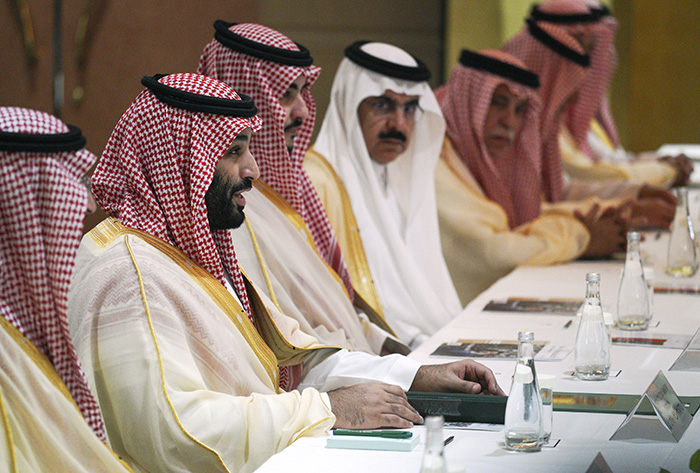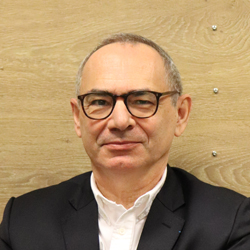Analyses / Middle East / North Africa
28 January 2025
Has Gulf Diplomacy Become Central to the Smooth Running of World Affairs?

Whether it is Saudi Arabia’s arbitration in Syria and Lebanon, Qatar’s mediation role between Hamas and Israel, Oman’s behind-the-scenes work with Iran and the Houthis, or the United Arab Emirates’ involvement in prisoner exchanges between Kyiv and Moscow, the conclusion is the same: in recent years, Gulf countries have played an increasingly significant role in resolving regional and international conflicts and crises.
Saudi diplomacy: from the shadows to the spotlight
Nature abhors a vacuum, and the Saudis have understood this well. The weakening of Iran following Israel’s blows against Hezbollah, its armed proxy in Lebanon and Syria, has allowed Riyadh to seize the opportunity to return forcefully to Lebanon and strengthen its influence in Syria.
Saudi Arabia is taking advantage of the loosening grip of the “Shia Crescent,” which had dominated part of the region for two decades, with Tehran expanding its hold in Lebanon through Hezbollah and in Syria, where the Iranians were one of the main supporters of Bashar al-Assad’s regime.
The Saudis have patiently planned their return to Lebanese and Syrian affairs. This strategy unfolded in several acts. The first was to cut financial support to Lebanon, which had fallen into Hezbollah’s hands and seemed immovable. The Sunni camp, represented by Saad Hariri, was reduced to a mere spectator. Saudi Arabia, which played a crucial role in ending Lebanon’s civil war through the 1989 Taif Agreement, seemed ready to abandon the country to its fate by depriving it of financial backing.
The second act was marked by a rapprochement with Turkey, the other major Sunni power in the region. Turkish President Recep Tayyip Erdoğan’s visit to Saudi Arabia on July 16, 2023, sealed a reconciliation between the two countries after the sharp tensions following the assassination of Jamal Khashoggi on November 2, 2018, in Istanbul. This rapprochement follows a pragmatic logic: both countries need each other. Turkey, a regional military power, requires financial support, while Saudi Arabia seeks Turkish technology in certain sectors to reduce its dependence on the West.
The third act was punctuated by the readmission of Bashar al-Assad’s Syria into the Arab League—an opportunity the former Syrian president failed to grasp, once again believing he could manipulate promises and commitments he never honored.
External events have also conveniently supported this strategy, and Saudi Arabia, a keen observer of regional affairs, has successfully transformed itself into a key diplomatic player. It has become indispensable on certain issues, such as Syria and Lebanon. Israel’s intervention in Gaza and southern Lebanon has weakened Iran’s regional influence. Hezbollah, now significantly diminished, will struggle to rebuild, especially since its traditional supply lines through Syria are unlikely to be restored anytime soon.
This year marks the tenth anniversary of King Salman’s accession to the throne and the effective rule of Crown Prince Mohammed bin Salman. Saudi Arabia has undergone a profound transformation in every domain. Its traditionally cautious and reserved diplomacy has given way to an assertive regional power determined to establish its primacy. This proactive diplomacy is reinforced by the leadership of Prince Faisal bin Farhan. A diplomat educated in top universities, he has a deep understanding of global power dynamics and the rules that govern them.
The Saudis return to Syria and Lebanon
With the fall of the Syrian regime and the shameful flight of Bashar al-Assad on December 8, 2024, one might have thought that the new rulers of Damascus would be entirely subordinate to Turkey, to which they owed much of their victory. Ahmed Al-Charra, the head of Hay’at Tahrir al-Sham (HTS), has since swapped his combat gear for a suit and tie. His first moves were to seek rapprochement with Riyadh, which responded positively.
For his first foreign visit, Assaad Hassan Al-Chibani, the new Syrian foreign minister, traveled to Saudi Arabia. In turn, the Saudi kingdom organized a ministerial meeting to support Syria. All Gulf countries participated, along with the foreign ministers of Egypt, Jordan, and Lebanon, the secretaries-general of the Arab League and the Gulf Cooperation Council, the UN special envoy for Syria, Geir Otto Pedersen, the High Representative of the European Union, Kaja Kallas, and the foreign ministers of Germany and the UK, Annalena Baerbock and David Lammy, also with American and French advisors present.
This conference aimed to lift international sanctions against Syria, coordinate aid for Syria’s reconstruction, and set expectations for the new power, which should guarantee the rights of all Syrians.
Saudi Arabia is also back in Lebanon. Riyadh, with the help of France and the United States, exerted its full influence to enable the election of General Joseph Aoun to the presidency. The visit to Beirut by Prince Khaled bin Salman, the Crown Prince’s brother and Saudi defense minister, and his visible support for General Joseph Aoun’s candidacy is a clear sign of this. Likewise, the appointment of a special envoy to Lebanon, Prince Yazid bin Farhan, brother and close advisor to Foreign Minister Faisal bin Farhan, is further proof of the Saudis’ renewed interest in Beirut. Moreover, President Aoun declared that his first foreign visit would be to Saudi Arabia. Last week, the Saudi foreign minister visited Beirut and Damascus to reaffirm Riyadh’s support for these countries and set out the guidelines Riyadh intends to enforce.
The pivotal role of the other Gulf countries
Gulf diplomacy is not limited to the actions of Saudi Arabia alone; other countries, such as Qatar and the United Arab Emirates, play a pivotal role in the region. The future of the 42-day ceasefire remains uncertain and fragile, but a ceasefire agreement between Hamas and Israel was concluded in Doha on January 19, 2025. Qatar’s mediation, with the active support of Egypt and the United States, was crucial in reaching this agreement and securing the release of Israeli hostages taken on October 7.
Similarly, Abu Dhabi played an important and unexpected role in the prisoner exchange between Russia and Ukraine, facilitating the release of 300 prisoners on December 30. Furthermore, the Emiratis are heavily involved in negotiations regarding the return of Ukrainian children abducted by the Russians.
Oman in its traditional role as a facilitator
Oman, in its traditional role as a mediator, acts as a messenger. Its highly secretive diplomacy allows it to play an effective role as a privileged interlocutor for marginalized countries like Iran or rebel groups such as Ansar Allah in Yemen. Recently, the Houthis released the crew of the Galaxy Leader, a ship seized in the Red Sea in November 2023. The twenty-five crew members of various nationalities were handed over to Omani authorities, who organized their repatriation to their respective countries.
Omani Foreign Minister Sayed Badr El-Busaïdi visited Tehran on December 30, 2024, for an important trip during which he met with key Iranian leaders. Sayed Badr carried a message from Sultan Haytham of Oman. The issue of Iran’s nuclear program was at the heart of the discussions, and the Omanis wanted to ensure that the Iranians had not changed their stance on this matter. A few days before the inauguration of Donald Trump, the Omani official was also believed to have carried U.S. messages, though this was denied by his hosts in Tehran, who emphasized Oman’s role in the 2015 nuclear agreement.
Thus, the longstanding or recent role of Gulf diplomacy places this region in a position to act on international crises and to become an indispensable actor in global diplomacy.

